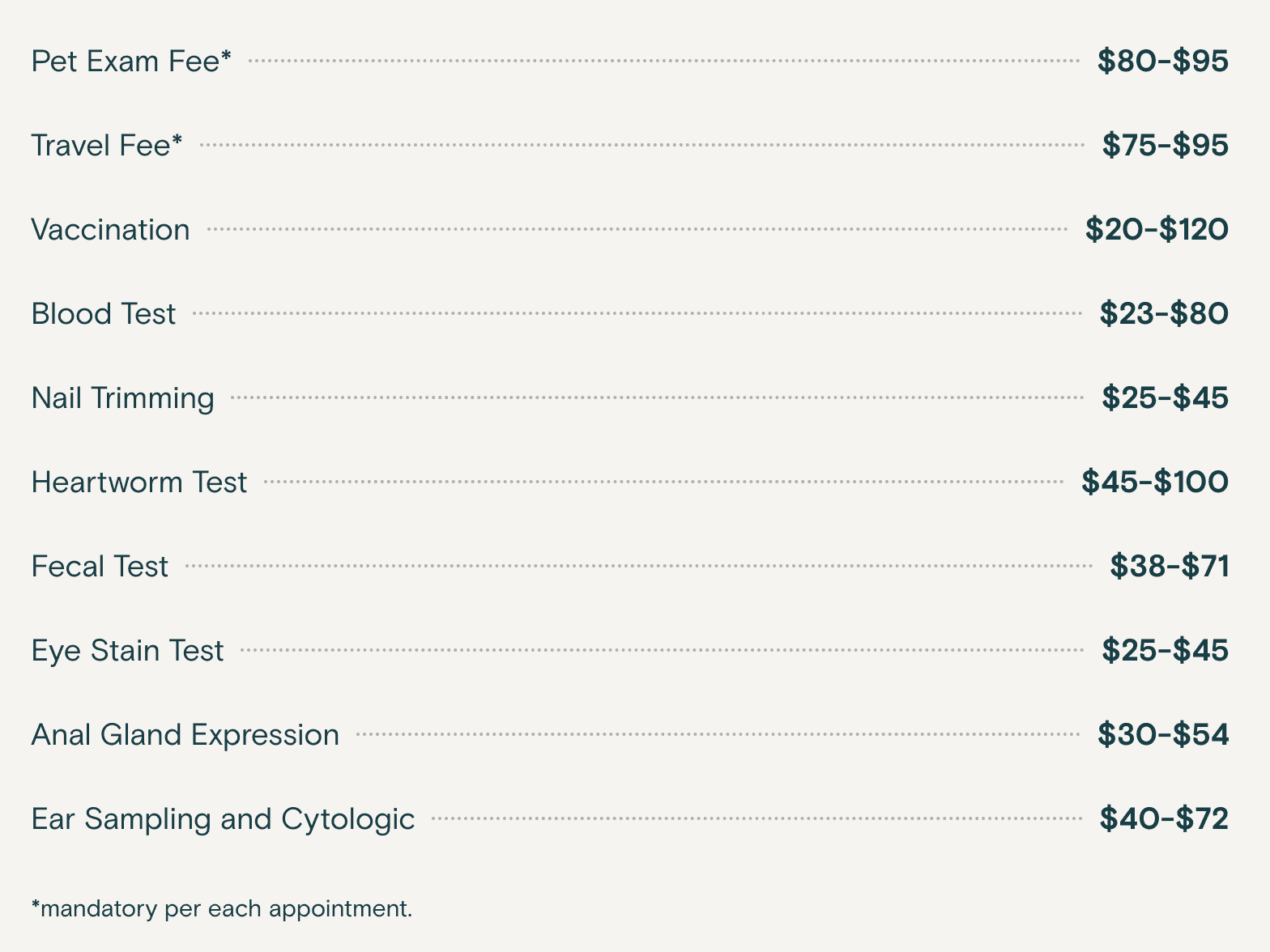Veterinary services
at your doorstep
From wellness exams to sick care, we’ve got you covered. Book an appointment and get stress-free veterinary care in the comfort of your home.
- Book now – limited availability!


The Vets + BetterVet:
a new era in pet healthcare
The Vets + BetterVet: a new era in pet healthcare
We’re thrilled to announce our merger with BetterVet. With our expanded network, scheduling an at-home vet visit is easier than ever. Whether you need a routine check-up, vaccinations, or lab tests, we now have more appointment slots to serve you and your pet when you need us most.
High-quality veterinary care at home









* Please note that certain services, including ultrasound and DNA tests, may not be available in all cities. Before booking, we kindly ask that you check their availability by calling 844-722-VETS.
Estimated Pricing
During each visit, our veterinary team will perform a thorough pet exam and take the time to recommend and discuss any additional services your pet might need. The price ranges for some of our most popular services are below so you can have a sense of what to expect at your visit.
Pet exam and home visit fees are included in every visit. Prices for other services and diagnostics vary based on the type, age, and health condition of your pet. Prices are subject to change.
Pet exam and home visit fees are included in every visit (prices vary by city). Prices for other services and diagnostics vary based on the type, age, weight and health condition of your pet. Prices are subject to change.
Read some of our 5‑star reviews



Keeping your pets calm and creating a positive experience during routine exams is better for everyone. That’s why our medical teams will go the extra mile to eliminate anxiety, stress, and fear in each patient during the appointment.





A few of our happy customers
Easy from nose to tail
The Vets offer a seamless experience tailored to your pet’s needs, from booking a convenient time online to the day of your in-home veterinary appointment.

Book a home vet visit today








